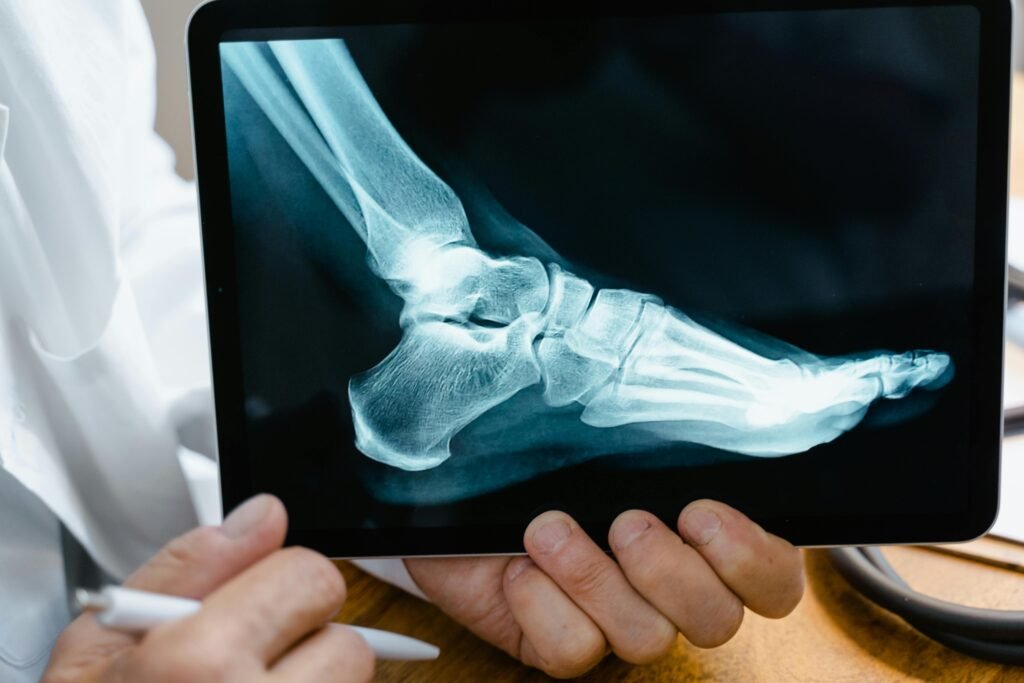TL;DR:
- Urgent care physicians treat non-life-threatening issues that require quick attention and are trained in family, emergency, and internal medicine.
- Key duties include diagnosing conditions, administering treatments, prescribing medications, and conducting diagnostic tests.
- Services offered: COVID-19 testing, fracture care, TB assessments, sports physicals, laceration treatments, and occupational health services.
- Differences from primary care: Urgent care focuses on immediate acute care, while primary care manages overall health.
- To find urgent care, use online directories, local provider websites, call centers, or mobile health apps.
- Direct primary care (DPC) offers a predictable, flat fee for comprehensive care, contrasting with the variable costs of urgent care visits.
Ever wondered what an urgent care physician actually does? You’re not alone. These medical pros are the unsung heroes of healthcare, swooping in to handle those non-life-threatening yet oh-so-annoying medical issues. They’re trained in everything from family medicine to emergency care, making them jacks-of-all-trades in the medical world. Ready to discover the key roles and responsibilities of an urgent care physician and why they’re so crucial to keeping us all healthy? Let’s dive right in!
Understanding the Role of an Urgent Care Physician
Urgent care physicians are the experts you turn to for non-life-threatening medical concerns. They’re trained in fields like family medicine, emergency medicine, and internal medicine. Their primary role is to provide quick and effective care for unexpected health issues. These issues can’t wait for a regular doctor’s appointment but aren’t severe enough for the ER. Think of them as healthcare superheroes for middle-ground medical situations.
Here are some key duties they handle:
- Diagnosing health conditions
- Administering treatments
- Prescribing medications
- Conducting diagnostic tests
- Providing follow-up care
Urgent care physicians play a vital role in non-life-threatening situations. They bridge the gap between regular primary care and emergency services by offering timely care without long waits. Whether it’s a sprained ankle or sudden flu, they’re equipped to handle various issues. This ensures you get back on your feet quickly.
Urgent care physicians significantly contribute to healthcare delivery. They provide an accessible and efficient option for immediate medical needs, reducing the burden on emergency rooms and primary care offices. This improves patient outcomes and enhances overall healthcare system efficiency. So next time you need quick medical attention, remember there’s likely an urgent care physician ready to help.
Services Offered by Urgent Care Physicians

Urgent care centers act as Swiss Army knives for medical needs. They offer various services to address minor injuries and non-life-threatening illnesses quickly and efficiently. Whether you have a nasty cough or a sprained ankle, urgent care has you covered.
One standout feature of urgent care is its ability to handle various medical services. For instance, they offer COVID-19 testing, which is crucial these days. They also treat fractures and sprains, making it easier to get immediate care without waiting for an ER visit. Additionally, they provide laceration and burn treatments, ensuring minor accidents are dealt with promptly.
Urgent care centers also excel in preventive and occupational services. They conduct TB assessments, sports physicals, and even DOT physical exams for work-related medical clearance. Occupational medical services cater to employees who need quick medical attention without scheduling appointment days in advance.
The advantages of these urgent care services are clear. They offer a convenient, accessible way to get medical attention without the long waits typically experienced in emergency rooms. The variety of services means you can get comprehensive care in one stop, saving both time and effort.
| Service | Description |
|———————————|—————————————-|
| COVID-19 Testing | Rapid and accurate testing for COVID-19|
| Fractures and Sprains | Treatment for broken bones and sprained joints |
| TB Assessments | Screening for tuberculosis |
| Sports Physicals | Medical exams required for sports participation |
| Laceration and Burn Treatments | Immediate care for cuts and burns |
| Occupational Medical Services | Medical services related to workplace health |
Differences Between Urgent Care Physicians and Other Medical Providers
How do urgent care physicians differ from primary care doctors? Urgent care physicians are your go-to for immediate medical needs that aren’t life-threatening but can’t wait for a regular appointment. Unlike primary care doctors who manage your overall health with ongoing care, urgent care doctors focus on treating acute issues like minor injuries or sudden illnesses. They’re trained in fields such as family medicine and internal medicine, making them versatile in diagnosing and treating various issues quickly.
What sets urgent care apart from emergency rooms? Urgent care clinics handle less severe conditions requiring prompt attention. Emergency rooms are equipped for life-threatening situations like heart attacks or severe trauma. In contrast, urgent care centers tackle problems like sprains, minor cuts, or fevers. This makes urgent care a quicker, more affordable option for non-critical conditions.
Urgent care physicians fill a unique role in the healthcare system. They offer immediate but non-life-threatening medical care, helping to relieve the burden on emergency rooms and primary care offices. This accessibility means you can get timely care without long waits or needing a prior appointment like with primary care doctors.
Key distinctions:
- Scope of practice: Urgent care focuses on acute, non-life-threatening conditions.
- Training and specialties: Trained in family medicine, emergency medicine, and internal medicine.
- Patient volume and types: Handles a high volume of patients with different minor medical issues.
- Availability and accessibility: Open extended hours, including weekends and holidays, without needing an appointment.
- Treatment focus: Immediate care for sudden illnesses and minor injuries.
How to Find an Urgent Care Physician Near You

Accessibility is crucial when it comes to urgent care. You want quick medical attention for unexpected health issues that can’t wait. Urgent care centers are designed for walk-in services, meaning you don’t need an appointment to see a doctor. This makes them super convenient for immediate care.
How do you find and contact an urgent care physician near you? Start by using online directories and maps to locate urgent care centers in your area. Many healthcare providers have websites that list their locations and services. You can also call nearby urgent care centers directly to ask about their services and hours. Lastly, mobile health apps can be a lifesaver, offering real-time information and sometimes allowing you to schedule appointments on the go.
- Use online directories and maps
- Check local healthcare provider websites
- Call nearby urgent care centers
- Use mobile health apps
Advantages of Direct Primary Care Over Urgent Care
Let’s discuss direct primary care (DPC). DPC is a healthcare model where you pay a flat fee—monthly, quarterly, or annually—for a range of primary care services. The main benefit is that no insurance companies are involved. This simplicity and transparency make healthcare more affordable and personalized, like having your personal healthcare concierge.
When comparing costs between DPC and urgent care, DPC often comes out ahead. Urgent care visits can be pricey, especially without insurance. Each visit can rack up costs for consultations, treatments, and tests. With DPC, you pay a straightforward, predictable fee covering more than just one-off visits. This means no surprise bills or extra charges for additional services.
Quality and personalization are where DPC shines. In a DPC setup, doctors have fewer patients, allowing longer appointments and a more personalized approach to your health. You build a real relationship with your doctor, who has time to understand your health history and needs. Urgent care, on the other hand, focuses on quick fixes and immediate treatment. While it’s excellent for urgent issues, it doesn’t offer the same ongoing, comprehensive care.
| Aspect | Direct Primary Care | Urgent Care |
|————————-|——————————-|——————————|
| Cost | Predictable, flat fee | Varies per visit |
| Insurance | Not required | Often required |
| Quality of Care | Highly personalized | Immediate but less personalized |
| Patient-Doctor Relationship | Strong, ongoing | Usually one-time |
Final Words
Urgent care physicians play a vital role in addressing non-life-threatening medical issues. They help diagnose, treat, and provide follow-up care, making them essential in non-emergency medical scenarios.
Urgent care centers offer a wide range of services, from treating fractures to offering COVID-19 tests. They’re crucial in filling the gap between primary care and emergency rooms.
If you need timely, accessible care, finding an urgent care physician nearby can be straightforward and stress-free.
In the end, both urgent care and Direct Primary Care offer unique advantages, but an urgent care physician is your go-to for immediate, non-life-threatening issues. Stay healthy!
FAQ
Urgent Care Physician Salary
Q: What is the average salary of an urgent care physician?
A: Urgent care physicians typically earn between $180,000 and $220,000 annually, depending on location and experience.
Urgent Care Near Me
Q: How can I find an urgent care center near me?
A: Use online directories and local healthcare provider websites, call nearby centers, or use mobile health apps like Zocdoc.
Urgent Care Physician Jobs
Q: Where can I find job listings for urgent care physician positions?
A: Job listings for urgent care physicians are on medical job boards, hospital websites, and recruitment agencies.
Are Urgent Care Doctors Less Qualified
Q: Are urgent care doctors less qualified than other doctors?
A: Urgent care doctors are highly qualified, often trained in family medicine, emergency medicine, or internal medicine, and have extensive experience in non-life-threatening medical issues.
How to Become an Urgent Care Physician
Q: How do I become an urgent care physician?
A: Complete medical school, followed by a residency in family medicine, emergency medicine, or internal medicine, and obtain relevant state medical licenses.
Urgent Care Doctors Names
Q: How can I find the names of doctors working at a specific urgent care center?
A: Check the urgent care center’s website or call them directly for information on their medical staff.
Urgent Care Physician Job Description
Q: What does an urgent care physician’s job description include?
A: Diagnosing conditions, administering treatments, prescribing medications, conducting diagnostic tests, and providing follow-up care.
Is Urgent Care Considered a Specialist for Insurance
Q: Do insurance companies consider urgent care physicians as specialists?
A: Generally, no. Urgent care is usually classified as primary or immediate care but check with your insurance provider for specifics.
Doctor vs. Physician
Q: What is the difference between a doctor and a physician?
A: There is no difference. “Physician” is another term for “doctor” and is often used interchangeably.
Urgent Care PA Role
Q: What does an urgent care PA (Physician Assistant) do?
A: An urgent care PA diagnoses, treats, and manages patient care under the supervision of a physician, similar to doctors.
Doctor vs. Emergency Physician
Q: What is the difference between a doctor and an emergency physician?
A: Emergency physicians specialize in treating acute, life-threatening conditions, while other doctors may have different specializations or handle non-emergency care.
Meaning of Urgent Care
Q: What does “urgent care” mean?
A: Urgent care provides immediate but non-emergency medical services for minor injuries and illnesses.
Understanding the Role of an Urgent Care Physician
Q: What is the role of an urgent care physician?
A: Urgent care physicians address non-life-threatening medical concerns, diagnose conditions, administer treatments, prescribe medications, conduct diagnostic tests, and provide follow-up care.
Services Offered by Urgent Care Physicians
Q: What services do urgent care physicians offer?
A: Urgent care services include COVID-19 testing, treatment for fractures and sprains, TB assessments, sports physicals, lacerations and burn treatments, upper respiratory treatments, occupational medical services, STD testing, cold and flu treatments, and DOT physical exams.
Differences Between Urgent Care Physicians and Other Medical Providers
Q: How do urgent care physicians differ from other medical providers?
A: Urgent care physicians focus on non-life-threatening issues, are trained in family and emergency medicine, and offer accessible, immediate care without scheduled appointments, unlike primary doctors or emergency rooms.
How to Find an Urgent Care Physician Near You
Q: How can I find an urgent care physician near me?
A: Use online directories and local healthcare provider websites, call nearby urgent care centers, or utilize mobile health apps.
Advantages of Direct Primary Care Over Urgent Care
Q: What are the advantages of direct primary care over urgent care?
A: Direct primary care offers comprehensive, personalized care without insurance hassles, often at lower costs, while urgent care provides immediate attention for acute, non-life-threatening conditions.

